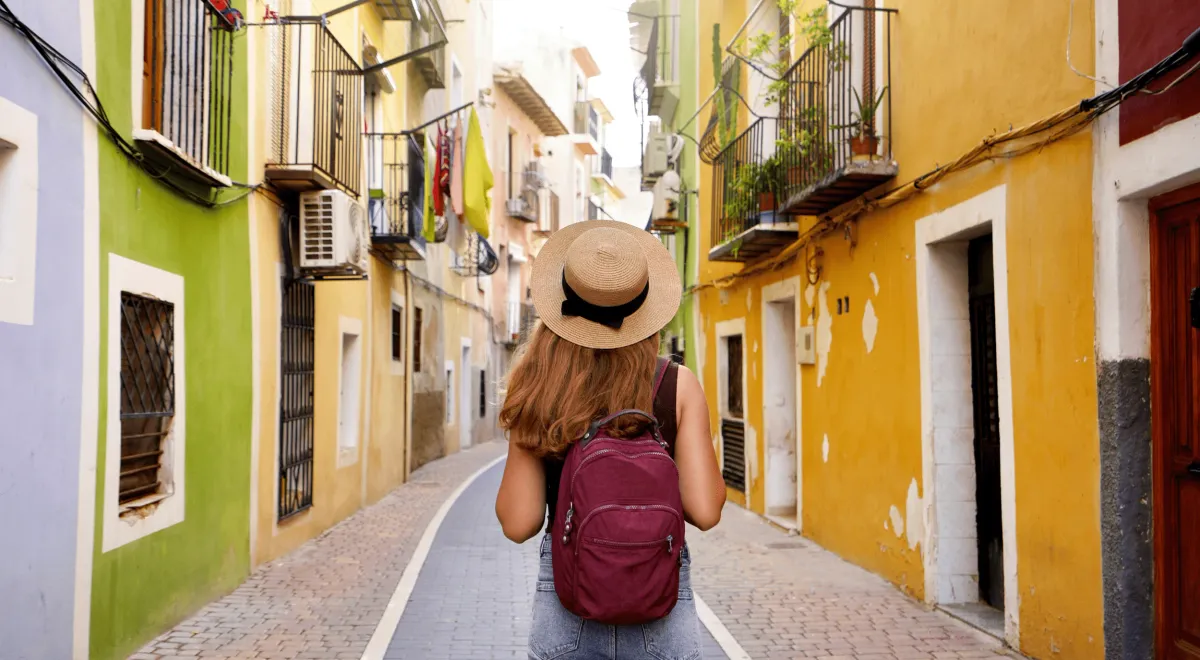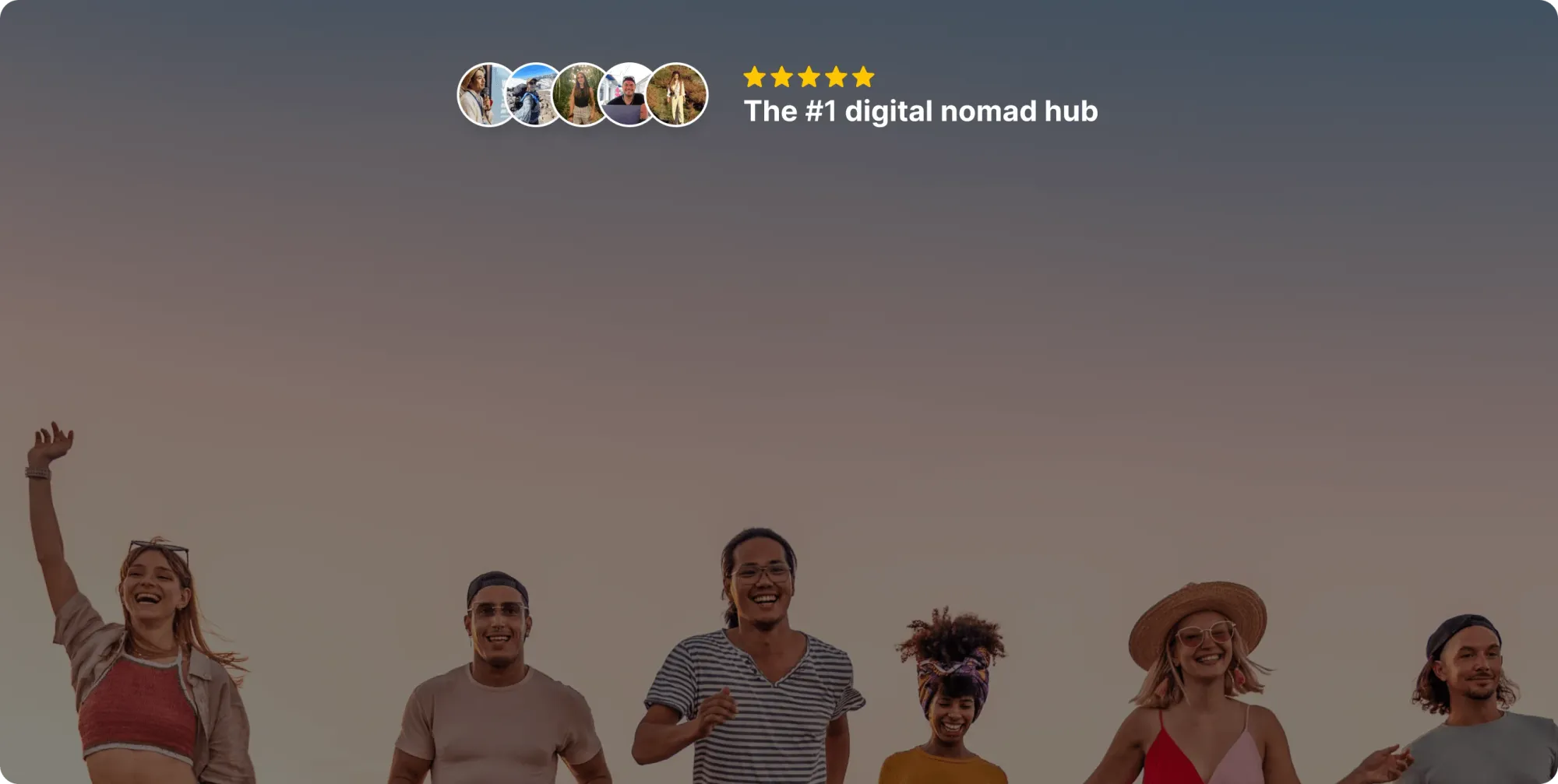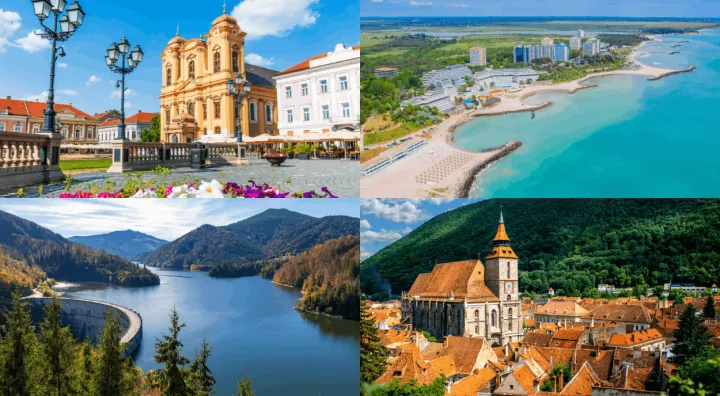Spain Digital Nomad Visa: How to Apply and Requirements

There’s a whole lot to love about Spain. Stunning beaches, incredible dining, passionate football, great weather and so much more!
Now, with the newly launched digital nomad visa, digital nomads can live and work in the country for an initial 12-month period. There’s scope to renew the visa for a maximum of five years, benefit from reduced income tax, and gain the freedom to explore Europe as an EU citizen.
In this article, we’ll break down the Spanish digital nomad visa. We’ll discuss the eligibility requirements and cover how to apply for the nomad visa.
Make sure to read until the end as we’ll talk about what makes Spain so good for digital nomads and share a handful of alternative Spanish visas for remote workers.
What is the Spain Digital Nomad Visa?
Launched in 2023, the much anticipated Spanish Digital Nomad Visa allows remote workers to live and work in the country for an initial 12-month period. Successful applicants can renew their visa for a maximum period of five years.
Holders of this digital nomad visa will be eligible to apply for the Spanish residency permit. This allows free travel around the European Union, much in the same way as a European local.
Unlike most digital nomad visas, the Spanish Nomad Visa allows holders to obtain freelance/contract work in Spain, providing that this forms less than 20% of their total income.
Who is Eligible for Spain’s Digital Nomad Visa?
The Spain digital nomad visa is open to location-independent workers that meet a small criteria set by the Spanish government.
First, you must demonstrate that your work can be completed remotely via an internet connection from Spain. Applicants must provide evidence of expertise in their chosen career path. This can be from a university degree, professional certificate, or a minimum of three years of work experience in similar roles.
As of 2025, applicants must also prove financial self-sufficiency, meeting the following income requirements:
- Individual - ~ €2,800 per month (€28,800 per year)
- Family of 2 - ~ €3,800 per month
The income requirements can be proved by using bank statements, payslips, and employment contracts. Applicants must also obtain full health insurance and hold a clean criminal record for a successful application.
The Spanish digital nomad visa is not open to EU/EEA citizens.
What are the Requirements for the Spain Digital Nomad Visa?
The Digital Nomad Visa for Spain isn’t open to everyone. Successful applicants must be able to provide the following when applying for the visa:
- Evidence of remote work
- Proof of expertise (university degree, workplace certificate, minimum of three years experience)
- Evidence of minimum income (€2,800 per month (€28,800 per year) for an individual)
- Proof of a clean criminal record (over the last five years)
- Evidence of health insurance (valid in Spain)
Additional documentation may be required. You will be informed of the required documents before attending the appointment with the local embassy or consulate.
How to Apply for Spain’s Digital Nomad Visa
Looking to apply for Spain’s Digital Nomad Visa? Check out the step-by-step guide below.
Step 1: Gather All Necessary Documents
The first step in applying for the Spain Digital Nomad Visa is to gather all of the necessary documents required for the application. You will need the following:
- National Visa Application Form
- Valid passport (one-year validity)
- Two passport photos
- Evidence of remote work (contract, letter from employer, freelance portfolio, etc.)
- Evidence that your position has been active for a minimum of one year
- Proof of income meeting the minimum requirements (payslips, bank statements, etc.)
- Evidence of expertise (university degree, professional certificate, proof of three years of experience)
- Evidence of health insurance
- Proof of a clean criminal record over the last five years
In the case of multiple applicants, the following must also be supplied:
- National Visa Application Form for each applicant
- Proof of relationship to other applicants (marriage certificate, birth certificate)
Step 2: Book an Appointment
An in-person appointment must be made with your local Spanish Embassy or Consulate.
This is typically arranged via email. You will then receive a payment link where you must pay the visa fee of approximately €80 (values may differ depending on country.). The visa fee is non-refundable.
The appointment is typically within two weeks of initiating the request.
Step 3: Attend the Visa Appointment
With all of the required documents gathered and the visa fee paid, you must now attend the visa appointment.
An interviewer may ask questions about your intentions in Spain and your plans once you have received the visa. Copies of your documents are likely to be taken.
Step 4: Await the Visa Outcome
Await the outcome of your visa application. This may take between two and six weeks.
If additional documentation is required, you will be notified to provide this to aid your application.
You will be notified in writing with the reasoning if your application is denied. An appeal, with supporting documentation, can be filed within one month of the dated letter.
Spain’s Digital Nomads Visa Fees
Unlike other digital nomad visas - the fees for the Spain visa are low with the following fees:
- Application fee - €80 (non-refundable)
How Long Does It Take for the Spain Digital Nomad Visa to Process?
After attending the interview with your local consulate or embassy, the process will take between two and six weeks.
The entire application process for the Spanish Digital Nomad Visa takes between four and eight weeks.
What Are the Benefits of Working as a Digital Nomad in Spain?
From the work-life balance, fantastic weather, and relatively low cost of living – there are so many benefits to living and working as a digital nomad in Spain.
Cost of Living
Spain has a relatively low cost of living and a high quality of life compared to other Western European countries. Major cities like Barcelona and Madrid typically offer a range of monthly expenses, between €1,200 and €2,500, depending on your lifestyle choices.
Housing costs vary significantly, with city center apartments averaging €700-€1,200 per month, but shared accommodations can reduce your expenses considerably.
Spain's robust public transportation system, affordable dining options, and comprehensive healthcare further contribute to its appeal. The country's cost of living index is approximately 31.68% lower than countries like the United States, making it an attractive option for remote workers from higher-cost countries. However, it's important to note that popular expat areas and tourist destinations may have higher costs, and prices can fluctuate seasonally, so these are only general baseline expenses to give you an overview of the cost of living in Spain.
Remote Work Culture
The digital nomad scene in Spain is well and truly booming. A country that has long attracted ex-pats, the cities of Madrid, Barcelona, and Valencia have quickly become hubs for international remote workers.
Work from a range of coworking spaces, including top names such as WeWork, alongside the many independent spaces. Cafes may also prove a good choice for nomads, but they’re not always encouraging remote workers. It’s best to seek out dedicated coworking cafes or simply ask the barista if it’s okay to set up shop for a couple of hours.
Food and Drink
Spain is renowned for its excellent food and drink scene – it’s one of the many reasons that so many nomads love the idyllic towns and cities.
Start your day with a coffee and light pastry, feast on paella for lunch, and enjoy tapas late into the night. Eat delicious cured meats (jamón ibérico) and fresh fish – drink fine wines, sangria, and local beers. It’s a true foodie paradise.
Healthcare
The healthcare in Spain is excellent, ranked 26th globally in the Legatum Prosperity Index – an independent study covering 167 nations. Care is affordable, readily available, and of high quality.
Organic vegetables, quality meats, and fresh produce are easy to source. Health and fitness is also a large part of the culture. Enjoy world-class cycling routes, join a group workout, take up hiking – the options are endless.
Digital nomad visa holders are required to provide evidence of health insurance with coverage in Spain during the application process. For this, we both use and recommend Genki – a robust health insurance provider specifically designed for digital nomads.
Are There Any Tax Implications For Digital Nomads Living In Spain?
The majority of the Digital Nomad Visa holders in Spain will become tax residents. There is, however, a special reduced rate of tax (24% on income of up to €600,000 per year).
Additionally, the country boasts double taxation agreements with more than 90 countries. This means visa holders will not pay double tax, providing that they spend more than 180 days in the country.
Other Visa Options Available to Digital Nomads for Spain
In addition to the digital nomad visa for Spain, remote workers may be able to apply for the following Spanish visas:
- Non-Lucrative Visa (NLV) or Retirement Visa
- Golden Visa
EU/EEA nationals do not require a specialist visa to live and work in Spain.
Other Digital Nomad Visa in Europe
Looking for European alternatives to the Spanish digital nomad visa? Check out the nearby digital nomad visas below:
- Croatia Digital Nomad Visa
- Montenegro Digital Nomad Visa
- Czech Republic Digital Nomad Visa
- Finland Digital Nomad Visa
- France Digital Nomad Visa
- Italy Digital Nomad Visa
- Portugal Digital Nomad Visa
Check out our list of digital nomad visas worldwide to find more visa options.
Ready to Apply for the Spain Digital Nomad Visa?

Join our global
digital nomad community
Join us for free
Freaking Nomads is supported by you. Clicking through our links may earn us a small affiliate commission, and that's what allows us to keep producing free, helpful content. Learn more




 Travel tips, hacks, and news
Travel tips, hacks, and news Exclusive travel discounts
Exclusive travel discounts Offers and promotions
Offers and promotions Digital nomad inspiration
Digital nomad inspiration Latest articles form our blog
Latest articles form our blog